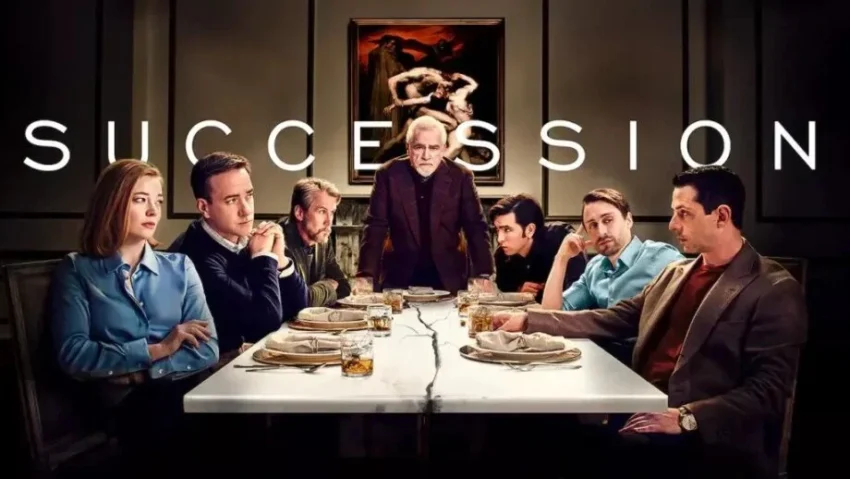During the production of financial drama The Big Short, Adam McCay made a bewildering discovery. His producers had sent off the movie’s working script to freshly hired composer Nicholas Britell for notes. He didn’t know at the time that Britell had done a stint at Bear Stearns as a currency trader. “Why is the composer giving me notes on my work?” Britell recalls McCay asking in a RogerEbert.com interview about the incident. “Who does this guy think he is?”
The answer, nearly a decade later, is abundantly clear: he’s the Grammy-nominated, Emmy-winning composer of Succession, Star Wars: Andor, Moonlight, and over a dozen other critically acclaimed films and television shows of the last two decades. And though he rarely writes script notes, his work nonetheless embodies, expands, and elevates the shows and films it’s a part of in a way wholly unique in Western prestige media.
Britell’s ability to embody the emotional reality of a given work and distill it into musical form is present throughout his soundtrack for The Big Short. While working on the project, Britell was tasked with trying to use sound to depict the frantic, labyrinthine world of Wall Street, and the very first track he composed for the movie was “Redemption at the Roulette Table.” The track plays at an emotional turning point in the film, where the sheer scale and scope of the coming financial crisis are becoming clear to the main characters. Accordingly, the track feels like a grim portent of the future, driven forward by an anxious ostinato that slowly grows in volume while a frantic piano desperately tries to ignore, downplay, and suppress it. It instantly conjures the feeling of repressed dread and feigned expertise that characterized the doomed foolishness of pre-2008 Wall Street—the very same world that The Big Short centers its story around.
But the ability to embody the feeling of a narrative is one thing—to build upon it is another. It’s in Succession where Britell’s work takes that next step, and it was appropriately the project for which he won his Emmy. It is not an exaggeration to say that a great deal of Succession’s unmatched ability to compel the viewer’s attention, empathy, and horror is owed directly to Britell’s score. Succession, for all the brilliance of its writing and acting, is largely a show about businesspeople in suits talking in various rooms. It could very easily slip into dullness as the viewer’s eyes glaze over while the main characters talk about stock prices, bear hugs, and political maneuvering, but it’s Britell’s score that lends these conversations the Shakespearean grandiosity that the show has become known for. Often, the show will use character leitmotifs and musical stings to provide narrative subtext that would otherwise be impenetrable—and the show uses them just as often to smash the viewer’s heart into pieces.
An example of both cases is on full display in the show’s Season 1 finale. In it, the show’s main character, Kendall Roy, has been implicated in a monstrous crime, and his father fully intends to use said crime to blackmail him into taking his side in a corporate spat. For nearly three whole minutes, the two men play the usual Succession game where both try to get the other to submit, often leaving large pockets of absolute silence between each jab. Finally, realizing the utter hopelessness of his situation, it is Kendall who surrenders—and as soon as he does, a withered, despondent rendition of the show’s main theme plays.
Arrangements of Succession’s main theme often play in the show’s major emotional turning points, but what makes this usage special is what it doesn’t have: namely, the booming 808s and hip-hop drums that are present both in the main theme and in tracks that are meant to represent Kendall and his ascendency. Instead, it is only the wistful, orchestral lament in the main theme’s B section that is represented in this rendition: the section that plays during the part of the intro that contains footage of the Roy family’s childhood upbringing.
In this musical choice, an immeasurable number of things are said without a single word being spoken. In his defeat by his abusive father, Kendall’s self-confident bluster is obliterated, leaving only a desperate little boy and the leitmotifs that represent him behind. Britell’s score quite literally reduces him to a child again, singularly concerned with the approval and affection of his father and uninterested in carving out any space in his life for his own self-actualization. This reduction is echoed by one of the darkest lines in the entire show, uttered by Kendall’s father Logan towards the end of the episode:
“You’re my boy. You’re my number one boy.”
Jeremy Strong’s (Kendall) and Brian Cox’s (Logan) performances are undeniably stellar, but without Britell’s soundtrack, this scene would merely be an isolated great performance by two show-stopping actors. But Britell’s score—with his masterful usage of leitmotifs and his unyielding commitment to arrangement-as-storytelling—elevates this moment to cosmic proportions. With just a few notes, Britell grounds this scene in the larger context of the show’s plot, themes, and character backstories. In ending the season with the very same motif played in the main theme, he depicts a Roy family enslaved to the legacy of their trauma, cyclically repeating the same mistakes, inflicting the same pain, and reopening the same wounds.
Britell may not write script notes in the margins of all the projects he’s a part of, but his immeasurable impact on the works he’s scored more than makes up for it. He’s a testament to what’s possible when scoring is taken seriously as a load-bearing piece of filmmaking—and a testament to what’s possible when musicians unapologetically adopt the role of storyteller.
I'm an Orlando-based writer and musician who has been writing off-and-on about politics, history, and media since 2017.


